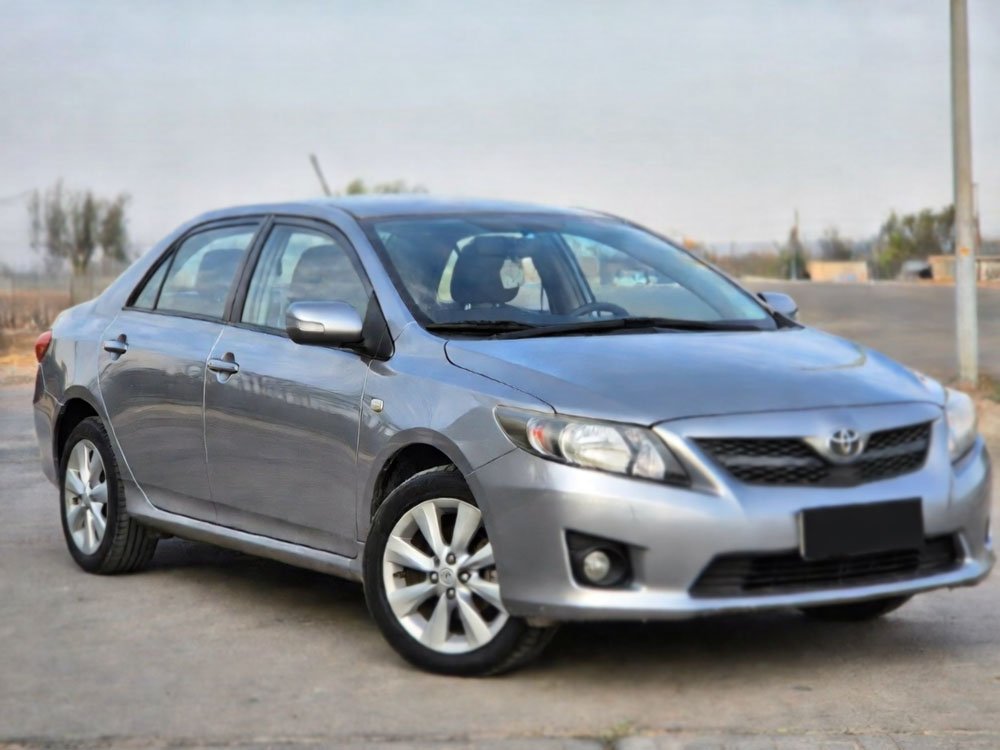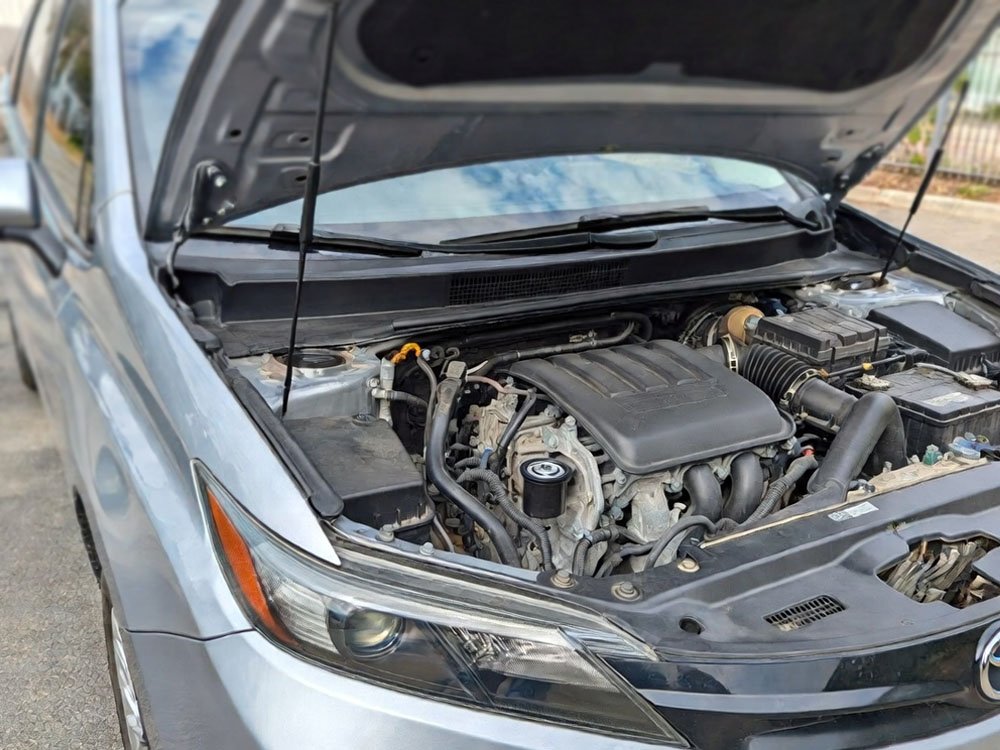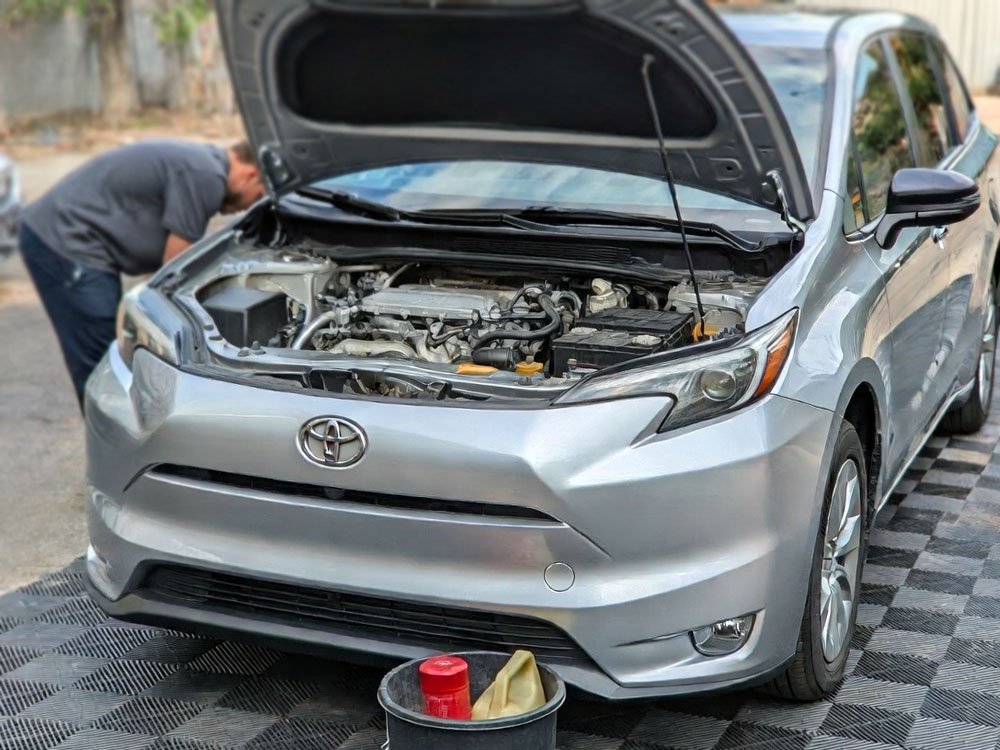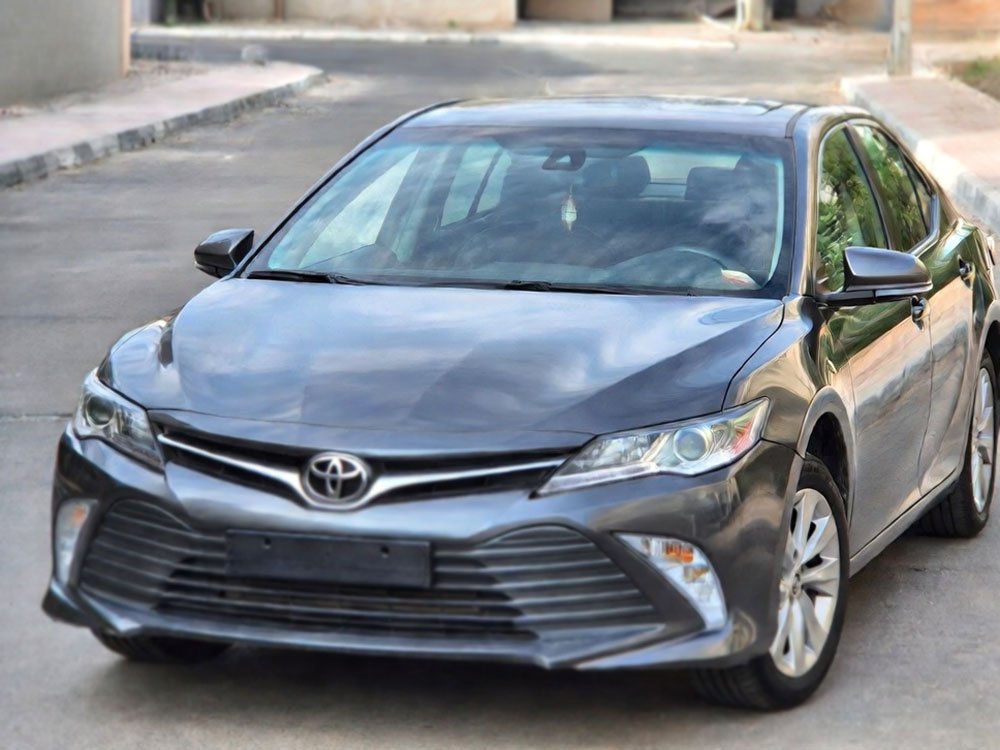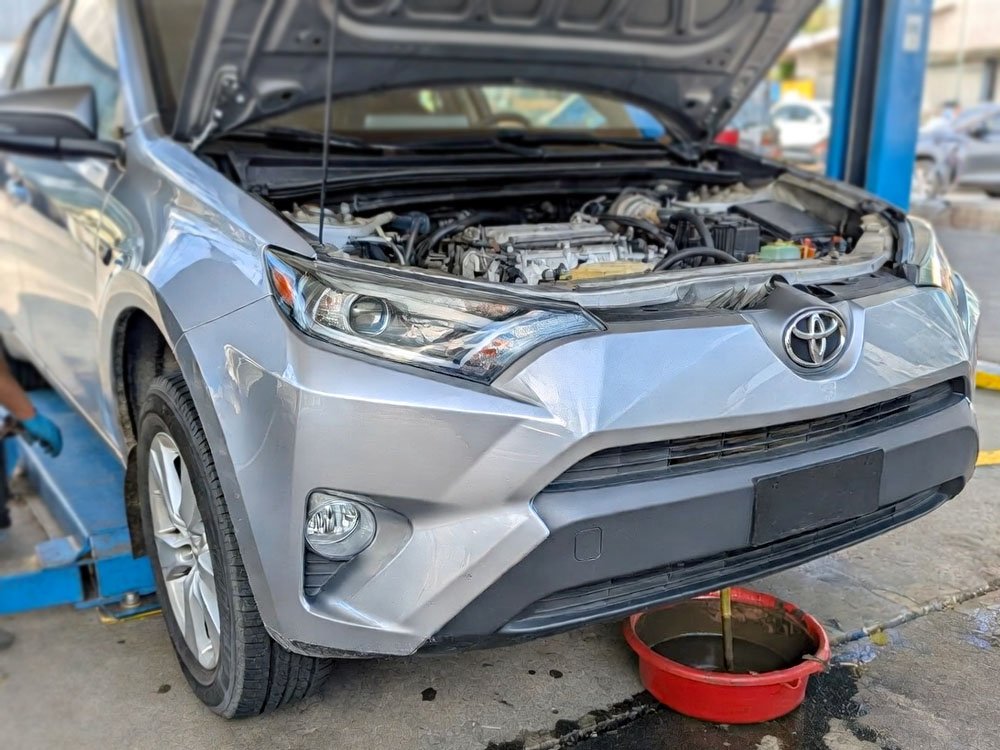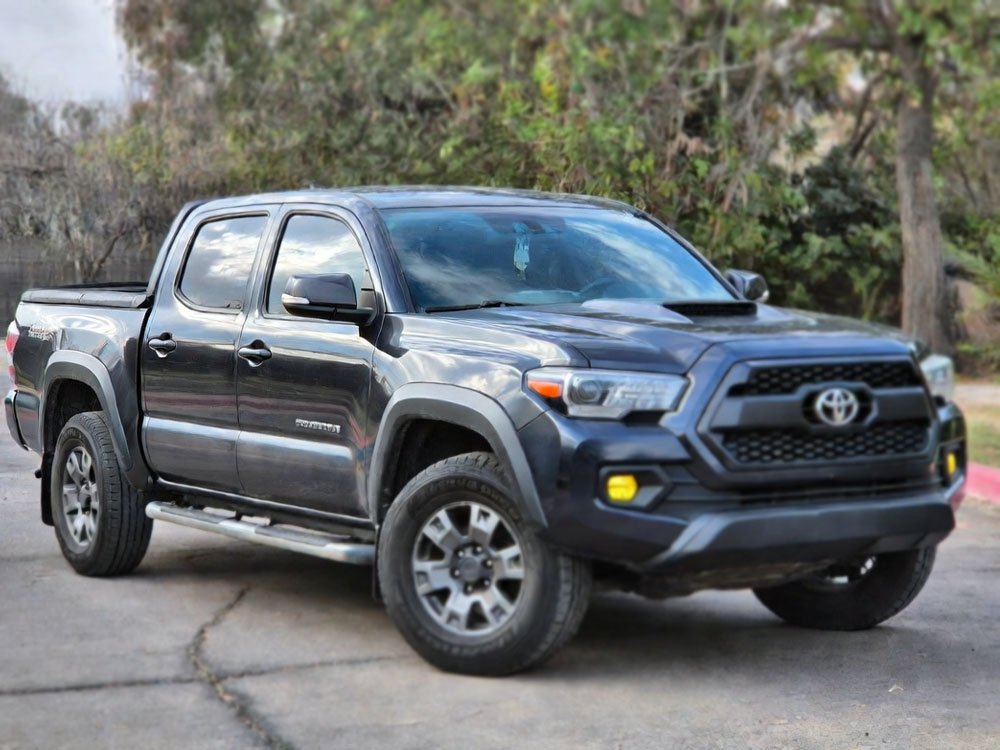As an Amazon Associate, I earn from qualifying purchases at no extra cost to you.
Jiffy Lube Wheel Bearing Replacement Cost: Expert Guide
Hey there! So, your car's making that annoying humming or grinding noise, and you're wondering if it's time for a wheel bearing replacement. You might be thinking about swinging by Jiffy Lube, but how much will it cost? Don't worry, I've got you covered. In this article, we'll break down everything you need to know about Jiffy Lube's wheel bearing replacement costs, what affects the price, and whether it's your best option.
Understanding Wheel Bearing Replacement and Costs
Wheel bearings are those unsung heroes that keep your wheels spinning smoothly, but when they go bad, it's hard to ignore. Getting them replaced at a place like Jiffy Lube can seem convenient, but the costs can vary. Let's unpack what goes into this service and what you might expect to pay.
What Are Wheel Bearings and Why Do They Matter?
Wheel bearings are small, metal components tucked inside your wheel assembly. They reduce friction, letting your wheels roll effortlessly while supporting your car's weight. Over time, dirt, water, or just plain wear can make them fail, leading to noises like grinding or humming, or even shaky steering. Ignoring bad bearings can damage other parts, like your tires or suspension, so it's not something to put off. Jiffy Lube, known for quick oil changes, also offers repair services, but wheel bearing replacement is a bit more complex.
Factors That Influence the Cost
The cost of replacing wheel bearings at Jiffy Lube depends on a few things. First, your vehicle type matters—compact cars often cost less than trucks or SUVs because of differences in parts and labor. The type of bearing (sealed or serviceable) also plays a role; sealed units are pricier but common in modern cars. Labor charges vary by location, with urban areas typically charging more. On average, you're looking at $150 to $400 per wheel at a shop like Jiffy Lube, parts and labor included. High-end vehicles or all-wheel-drive systems can push costs toward the higher end.
Does Jiffy Lube Do This Service?
Not every Jiffy Lube location offers wheel bearing replacement. While they're pros at oil changes and basic maintenance, complex repairs like this depend on the shop's equipment and staff expertise. Some locations might refer you to a partner garage or suggest a nearby mechanic. Before heading out, call your local Jiffy Lube to confirm they can handle it. If they don't, they might still inspect your vehicle and diagnose the issue, which can cost $20 to $50, depending on the location.
Hidden Costs to Watch For
Beyond parts and labor, there could be extra fees. Some shops charge for a diagnostic test to confirm the bearing is the issue. If your car needs an alignment after the repair (common with front-wheel bearings), that's another $50 to $100. Jiffy Lube might also suggest related services, like brake inspections, which can add up. Always ask for a detailed estimate upfront to avoid surprises. If you're quoted over $400 per wheel, it's worth shopping around or checking with a specialized mechanic.
Is Jiffy Lube the Best Choice for Wheel Bearing Replacement?
Jiffy Lube's convenience is hard to beat, but is it the right spot for a wheel bearing job? Let's weigh the pros and cons, compare it to other options, and help you decide if it's the best move for your car and wallet.
Pros of Choosing Jiffy Lube
Jiffy Lube's biggest draw is speed and accessibility. With over 2,000 locations nationwide, there's likely one near you, and they're known for quick service. Their technicians are trained through Jiffy Lube University, an ASE-accredited program, so they're not just winging it. If your local shop offers wheel bearing replacement, you might get in and out faster than at a dealership. They also use a nationwide database to track your service history, which is handy if you move or visit another location. Plus, Jiffy Lube often has coupons online, which could shave $10 to $50 off your bill.
Cons to Consider
On the flip side, Jiffy Lube isn't a full-service repair shop. Wheel bearing replacement requires specialized tools, like a hydraulic press, and not all locations have them. If they outsource the job, costs could climb, and you might lose the "quick" factor. Customer reviews sometimes mention upselling—where techs push extra services you don't need—so be ready to say no if it's not in your budget. Also, their pricing might not always be the cheapest. Independent mechanics or tire shops could offer lower rates, especially if you bring your own parts.
Comparing Jiffy Lube to Other Options
Let's stack Jiffy Lube against alternatives. Dealerships are pricier—often $300 to $600 per wheel—but they use OEM (original equipment manufacturer) parts, which might last longer. Independent mechanics can be a sweet spot, charging $100 to $300 per wheel, and they often provide personalized service. Chain shops like Pep Boys or Midas are similar to Jiffy Lube, with costs in the $150 to $400 range, but they might have more repair-focused equipment. If you're handy, DIY replacement is an option, with parts costing $50 to $150 per wheel, but it's labor-intensive and requires tools most folks don't own.
When to Choose Jiffy Lube
Jiffy Lube makes sense if you value convenience, your local shop offers the service, and you're okay with mid-range pricing. It's a solid choice for routine maintenance paired with the repair—like getting an oil change while they fix your bearing. If your car's under warranty or you suspect other issues (like suspension damage), a dealership or specialized mechanic might be better. Always get quotes from multiple shops and check reviews for your local Jiffy Lube to ensure they're trustworthy.
Tips for Saving Money and Ensuring Quality
Nobody wants to overpay or end up with shoddy work. Here's how to keep costs down and make sure your wheel bearing replacement at Jiffy Lube (or elsewhere) is done right.
How to Get the Best Price
Saving a few bucks starts with research. Check Jiffy Lube's website for coupons or call to ask about promotions—many locations offer discounts on bundled services. Compare quotes from at least three shops; even a quick phone call can reveal cheaper options. If you're set on Jiffy Lube, ask if they price-match competitors. Buying your own wheel bearing from a reputable retailer like AutoZone can sometimes cut costs, though not all shops allow this. Also, consider timing—some shops offer off-season discounts when business is slow.
Ensuring High-Quality Service
Quality matters as much as cost. Before committing, confirm the shop uses high-quality parts—brands like Timken or SKF are reliable. Ask about the technician's experience with wheel bearing jobs; a seasoned pro is less likely to mess up. Request a warranty on parts and labor—most reputable shops, including Jiffy Lube, offer at least 90 days. After the repair, test-drive your car to ensure the noise is gone and steering feels normal. If something's off, return immediately; don't let small issues become big ones.
Red Flags to Avoid
Watch out for shops that pressure you into unnecessary services. If Jiffy Lube suggests replacing all four bearings when only one is bad, get a second opinion. Be wary of vague estimates or refusal to show you the old parts—transparency is a good sign. Check online reviews for your local Jiffy Lube; a pattern of complaints about overcharging or poor work is a red flag. Finally, ensure the shop performs a post-repair alignment if needed, as skipping it can wear out your tires faster.
Maintenance to Prevent Future Issues
Once your bearing's replaced, a little TLC can prevent future headaches. Regularly inspect your wheels for odd noises or looseness, especially after long trips. Keep your car's suspension in check—bad shocks or struts can stress bearings. Avoid potholes and rough roads when possible, as impacts can shorten bearing life. If you're a Jiffy Lube regular, ask them to check your bearings during routine oil changes; catching wear early can save you from a full replacement down the road.
I hope this guide has cleared up the mystery of Jiffy Lube's wheel bearing replacement costs! Whether you choose their convenience or shop around, you're now armed with the know-how to save money and get quality work. Drive safe, and keep those wheels spinning smoothly!
Frequently Asked Questions (FAQs)
Is it safe to drive with a bad wheel bearing?
Driving with a bad wheel bearing is risky. The grinding or humming noise signals wear, which can lead to wheel wobble or, in worst cases, the wheel seizing up. This could cause loss of control, especially at high speeds. If you suspect a bad bearing, get it checked ASAP. Jiffy Lube or a mechanic can diagnose it, often for $20 to $50. Fix it within days, not weeks, to avoid damaging your tires, suspension, or brakes, which could cost hundreds more.
Can Jiffy Lube replace wheel bearings on any car?
Not all Jiffy Lube locations can handle wheel bearing replacement, and it depends on your car. Basic sedans are more likely to be serviced than complex SUVs or luxury vehicles. Call your local shop to confirm they have the tools and expertise. If they don't, they might refer you elsewhere. Always verify they use quality parts compatible with your vehicle's make and model to avoid issues like premature wear or poor performance.
Do I need to replace all wheel bearings at once?
You usually don't need to replace all wheel bearings unless they're all showing signs of wear. Typically, only one or two go bad at a time, costing $150 to $400 each at Jiffy Lube. However, if one front bearing fails, check the other side, as they often wear similarly. Replacing in pairs can prevent uneven handling and save labor costs long-term. Ask for a thorough inspection to avoid unnecessary replacements.
Is it cheaper to replace wheel bearings myself?
DIY wheel bearing replacement can save money—parts cost $50 to $150 per wheel—but it's not easy. You'll need tools like a hydraulic press, torque wrench, and jack stands, plus a few hours of work. Mistakes can damage your car or lead to unsafe driving. If you're not mechanically inclined, Jiffy Lube's $150 to $400 per wheel is worth the peace of mind. Compare shop quotes to ensure you're not overpaying.
Can I use a coupon for wheel bearing replacement at Jiffy Lube?
Jiffy Lube often has coupons for oil changes or tire services, but wheel bearing replacement discounts are rare. Check their website or call your local shop for promotions. Some locations offer $10 to $50 off bundled services, which could apply if you're also getting maintenance like an oil change. Always ask for a detailed estimate to see where savings might apply, and compare with other shops for the best deal.
Do I need an alignment after wheel bearing replacement?
If the replaced bearing is on a front wheel, an alignment is often needed, costing $50 to $100. Wheel bearings affect steering geometry, and a misaligned car can wear tires unevenly or handle poorly. Jiffy Lube might include this in their service or charge extra, so ask upfront. Skipping it can lead to bigger expenses, like new tires sooner than expected. Confirm the shop checks alignment post-repair.
Is it normal for Jiffy Lube to upsell during a wheel bearing job?
Upselling is common at Jiffy Lube, as some locations push extra services like brake checks or fluid flushes to boost revenue. While not inherently bad, it can inflate your bill. Politely decline anything not related to the bearing unless it's critical. Ask for proof of need, like a dirty filter or worn part. If you feel pressured, get a second opinion from another shop to ensure you're only paying for what's necessary.
Can wheel bearing issues be prevented?
You can't fully prevent wheel bearing wear, but good habits help. Avoid hitting potholes or curbs, which stress bearings. Keep your suspension maintained—worn shocks can strain bearings. Regular inspections during oil changes at Jiffy Lube can catch early wear, saving you from a $150 to $400 replacement. Driving gently and avoiding heavy loads also extends bearing life. Ask your technician to check for noises or looseness during routine visits.



